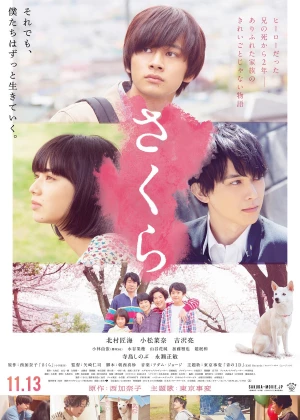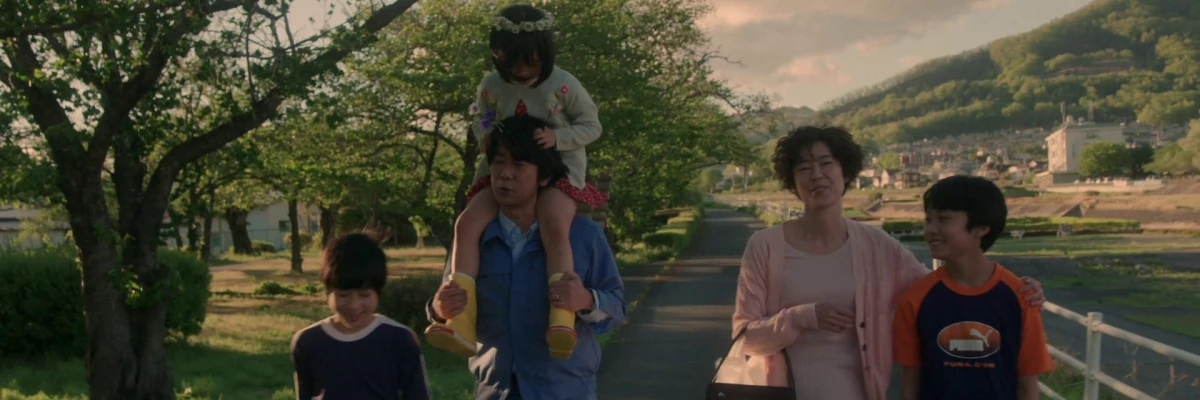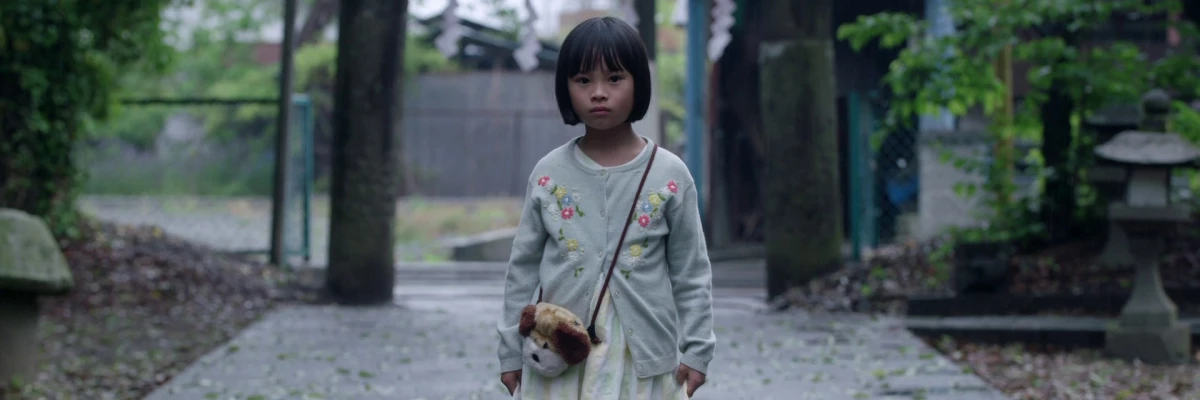Sakura

Initially, I skipped Hitoshi Yazaki's Sakura solely based on the poster. It looked a little too generic and saccharine for my taste, and with so many Japanese dramas to choose from, one has to make hard choices from time to time. A pointed recommendation made me reconsider, and I'm truly glad I did. This is one of those films that hides quite a bit under its cover and it isn't until the second half that Sakura reveals its true face. The twists and turns may not be for everyone, but it's what made this film stand out for me, and turned it into a personal favorite.

Japanese dramas come in two distinctly different flavors. There are light, fluffy slice-of-life dramas that are quite slow, low on drama, and focus on smaller events. Then there are the dark, heavy, and often taboo-ridden dramas that hit a lot harder and love to challenge their audience. There's very little crossover between the two, which is why Sakura is such an interesting experiment. Admittedly, it's not that easy to combine both sides of the spectrum without ending up with a muddled mixture, which is why I was pretty surprised Yazaki managed to do so almost effortlessly.
The first half of Sakura is a light family drama, the name of the film referencing the family dog (but don't worry, there are also some token cherry tree scenes in there). It had me worried for a moment, because Japan has a small but dedicated pet niche, and these films tend to get a bit too frilly and cutesy for my taste. But Yazaki quickly moves on to the family itself. It's a pretty standard, happy family with three kids who enjoy a warm home and good upbringing, living in a more rural part of Japan. It's exactly this sheltered life that will come back to bite them in the ass later on.
Hajime is the firstborn of the family, a kid who excels at sports and is destined to experience everything first. His brother Kaoru and sister Miki look up to Hajime, though they are in no way neglected by their parents, who love all their kids equally. When Hajime announced he has a girlfriend, the tight family unit gets its first little dent. The girl isn't all that sociable and Miki gets a little jealous when Hajima's attention moves away from his family. When Hajime's girlfriend is forced to move away, Miki feels relieved, but little does she know that this event will change their lives forever.

The cinematography is proper, but nothing out of the ordinary. If you've seen your share of Japanese dramas, you'll know exactly what to expect. Soft colors, gentle camera work, and a couple of playful interludes (but not too many). Yazaki picks his moments to add a little extra visual flair, those scenes stand out quite naturally, but overall they don't do too much to elevate the visual appeal of the film. Sakura certainly isn't bad-looking, and the visuals work in favor of the drama, it's just that with so many films competing in the same little niche, it doesn't leave much of a lasting impact.
The soundtrack is equally predictable. Japanese dramas love a good piano tune to set the mood, and Yazaki sticks closely to this favored format. It's not a bad choice and you could even call it part of the setup, expertly hiding the twists in the second half of the film, but I feel that would be extending the director a little too much credit. It's a perfectly fitting soundtrack that creates a pleasant mood and flows well with the lighter mood of the first half, but it lacks identity and you'll be hard-pressed to remember much of it once the credits start rolling.
Now, the cast is an entirely different story. With Masatoshi Nagase, Shinobu Terajima, and Nana Komatsu headlining the film, Yazaki found himself a sublime collection of actors who had no trouble embodying the switch from light to dark. Komatsu in particular has a pretty dastardly role, which she pulled off with the greatest ease. These three ensure the narrative twists never overshadow the drama, which is crucial for the impact Sakura wanted to create. The rest of the actors are pretty solid too, but they fail to leave as much of an impression. Then again, who can blame them when they're up against such powerhouses?

During the first half of the film, pointed hints are given about a deeper, underlying madness that is about to manifest itself in the second half. The intriguing angle here is that this very madness is rooted in a warm, well-meaning family unit, with no real identifiable mishaps. This abundance of love and warmth somehow kickstarts a string of dramatic events that turn this loving family upside down, the only way the film doesn't end in complete misery is by putting things in perspective at the very end. It's a smart way to end the film, otherwise, it might've ended up feeling a bit too exploitative.
Sakura may look like a harmless little timewaster from the outside, but it harnesses a darker core that rears its head after making sure everyone in the audience has lowered their guard. The styling is a little by the numbers, but the performances are superb and the way the mood turns during the second half is very impressive. I don't think this is a film that will enjoy wide distribution, so getting your hands on it might be somewhat of a challenge, but if you're partial to Japanese dramas and you don't mind a little twist to shake things up, this is a solid recommendation.